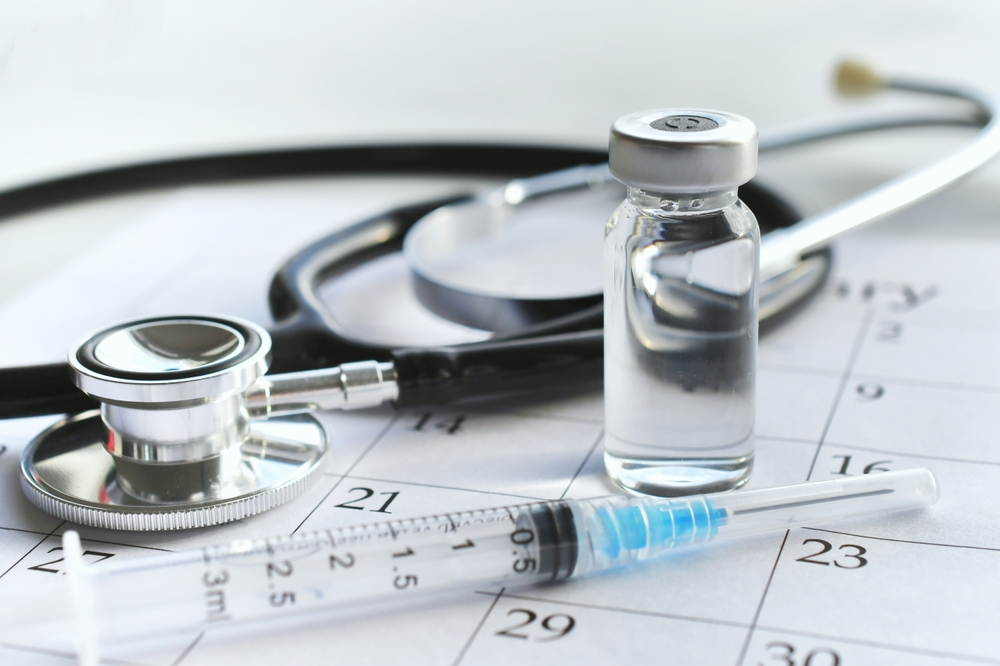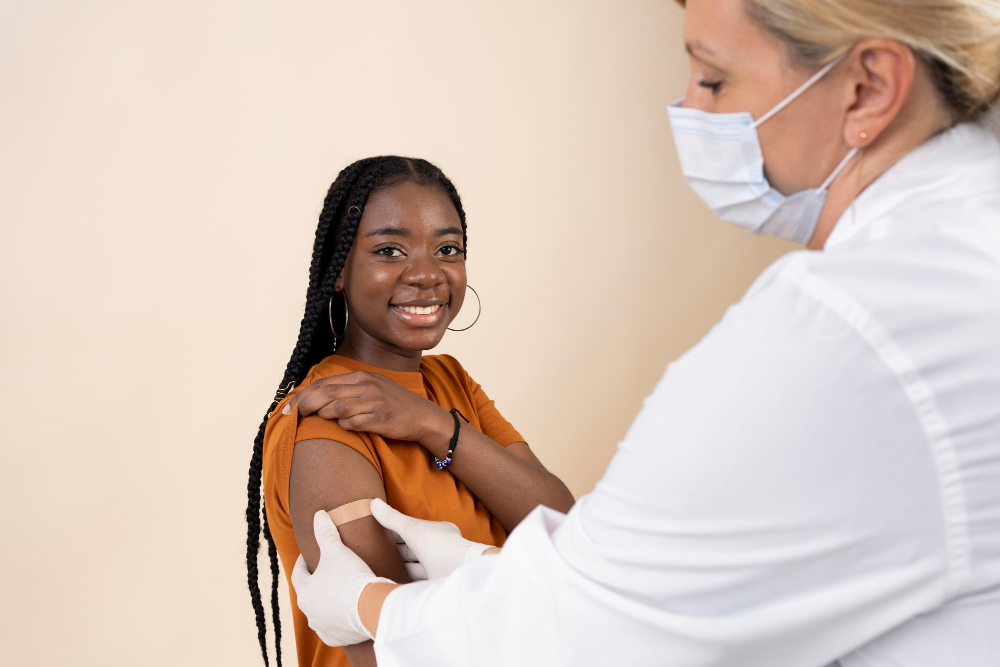Travel vaccinations are key to keeping your dream vacation safe from preventable diseases that could turn your trip into a health crisis. Before starting your journey, you must know the health risks of different travel destinations.
This guide explains the importance of vaccinations, especially when traveling to high-risk areas, and identifies the regions where they are most needed. If you’re planning a safari in Africa, an adventure in Asia, or a relaxing beach vacation, knowing the required vaccines will help to ensure a safe and enjoyable trip.
Read: Labor Day Travel: Plan Ahead, Stay Patient, and Be Courteous
The Importance of Travel Vaccinations
When you travel, especially to regions far from home, you expose yourself to different environments, foods, and diseases your body isn’t used to. Infectious diseases are a global concern; some areas have higher risks than others.

Vaccinations are your best defense against diseases common in various parts of the world. Without them, you risk serious illness. Essential vaccines to consider include:
- Yellow Fever: Required for specific areas in Africa and South America.
- Typhoid: Important for regions with poor sanitation, such as South Asia.
- Hepatitis A and B: Needed where food and water hygiene is uncertain.
- Cholera: Necessary in places with outbreaks or poor sanitation.
- Rabies: Required if you’re traveling to areas where animal bites are common.
Key Factors That Make a Destination High-Risk
What makes some travel spots more risky than others? Learn how poor health care, disease outbreaks, and climate can increase risk. Understanding these factors helps you stay safe during your trip.
- Health and Sanitation Standards: Poor sanitation increases the risk of waterborne diseases like cholera and typhoid.
- Endemic Diseases: Some regions have diseases that are common locally, like malaria in Sub-Saharan Africa or yellow fever in certain parts of Africa and South America.
- Climate and Environment: Tropical climates can encourage the spread of mosquito-borne diseases such as malaria and dengue fever, making vaccinations crucial for protection.
Read: Secrets to Enjoying Luxury Travel on a Budget
The Worst Places to Visit Without Travel Vaccinations

Which places are the most dangerous without vaccines? When planning a trip, knowing the regions with the highest risks is essential if you’re not vaccinated. Below, we break down specific areas, the diseases you might encounter, and the necessary vaccinations to protect yourself.
1. Sub-Saharan Africa
West Africa
- Countries: Nigeria, Ghana, Sierra Leone, Côte d’Ivoire
- Key Risks: Yellow fever, malaria, meningitis, cholera
- Protection: Vaccinate against yellow fever and typhoid. Malaria prevention requires antimalarial medication, and good hygiene must be ensured to avoid cholera.
Central Africa
- Countries: Democratic Republic of Congo (DRC), Cameroon, Gabon
- Key Risks: Ebola, malaria, typhoid, yellow fever
- Protection: Get vaccinated for yellow fever and typhoid. Use antimalarials and be cautious about hygiene to prevent disease.
Eastern Africa
- Countries: Kenya, Tanzania, Uganda, Ethiopia
- Key Risks: Malaria, yellow fever, Rift Valley fever, hepatitis A
- Protection: Vaccinate against yellow fever and hepatitis A. Take antimalarial drugs and avoid mosquito bites.
2. South Asia
India and Surrounding Countries
- Countries: India, Bangladesh, Nepal, Sri Lanka, Bhutan
- Key Risks: Typhoid, hepatitis A, Japanese encephalitis, rabies
- Protection: Vaccinate against typhoid, hepatitis A, and Japanese encephalitis. Be cautious with food and water, and avoid stray animals to prevent rabies.
Pakistan and Afghanistan
- Key Risks: Polio, typhoid, cholera, hepatitis A
- Protection: Ensure polio, typhoid, and hepatitis A vaccinations are current. Watch for cholera in areas with poor sanitation.
3. Southeast Asia
Indochina Peninsula
- Countries: Vietnam, Cambodia, Laos
- Key Risks: Dengue fever, malaria, Japanese encephalitis
- Protection: Get vaccinated for Japanese encephalitis and take antimalarial drugs. Use mosquito repellent to prevent dengue fever.
Maritime Southeast Asia
- Countries: Indonesia, Philippines, Malaysia, East Timor
- Key Risks: Malaria, dengue fever, typhoid, rabies
- Protection: Vaccinate for typhoid and take antimalarials. Avoid mosquito bites to reduce dengue risk, and be cautious with stray animals.
4. Central and South America
Amazon Basin
- Countries: Brazil, Peru, Colombia, Bolivia, Venezuela
- Key Risks: Yellow fever, malaria, Zika virus, dengue fever
- Protection: Vaccinate against yellow fever and use antimalarial medication. Prevent mosquito bites to avoid Zika and dengue.
Central America
- Countries: Guatemala, Honduras, Nicaragua, Panama
- Key Risks: Dengue fever, hepatitis A, malaria
- Protection: Get vaccinated for hepatitis A and use antimalarial drugs. Protect yourself from mosquito bites to avoid dengue.
5. The Middle East and North Africa (MENA)
North Africa
- Countries: Egypt, Morocco, Algeria, Tunisia
- Key Risks: Hepatitis A, typhoid, schistosomiasis, rabies
- Protection: Vaccinate against hepatitis A and typhoid. Avoid freshwater bodies to prevent schistosomiasis, and be cautious with animals.
Middle East
- Countries: Yemen, Saudi Arabia, Iraq, Syria
- Key Risks: Polio, hepatitis A, typhoid, MERS
- Protection: Ensure your polio and hepatitis A vaccinations are up to date. Watch for typhoid and be aware of MERS risks.
7. Central Asia
- Countries: Kazakhstan, Uzbekistan, Turkmenistan, Kyrgyzstan, Tajikistan
- Key Risks: Hepatitis A, typhoid, tuberculosis, rabies
- Protection: Vaccinate for hepatitis A and typhoid. Be cautious with food and water, and avoid contact with stray animals.
7. The Caribbean
- Countries: Haiti, Dominican Republic, Jamaica, Cuba
- Key Risks: Dengue fever, Zika virus, hepatitis A, cholera
- Protection: Get vaccinated for hepatitis A and be vigilant about mosquito bites to prevent dengue and Zika. Ensure good hygiene to avoid cholera.
Read: The Biggest Safety Mistakes People Make When Traveling Solo
Preparing for Safe Travel
Are you planning a trip to a risky area? Discover how to get ready, from consulting a doctor to packing a health kit. Good preparation can make your trip safer and more enjoyable.

Consulting a Healthcare Professional: Before you travel to high-risk destinations, it’s necessary to consult a healthcare professional. Visit a travel clinic or see your doctor 6-8 weeks before your trip. They can provide personalized advice and ensure you get the right vaccinations and health advice for your destination.
Recommended Vaccination Schedule: Follow a general schedule to get your vaccinations early. For most destinations, starting vaccinations at least 6-8 weeks before departure is best. This time frame allows your body to build immunity and ensures you’re fully protected before traveling.
Travel Health Kits: Prepare a travel health kit to stay safe abroad. Include antimalarial medications, mosquito repellents to protect against insect bites, and basic first aid supplies like bandages and antiseptic. This kit can help you manage minor health issues and reduce your risk of illness.
What to Do If You Can’t Get Vaccinated
What if you can’t get all the needed vaccines? Avoid risky foods and drinks and use insect repellent to learn how to stay safe. Also, get tips on what to do if you get sick while traveling.
Travel Precautions
If you can’t get all the necessary vaccinations, take extra care to stay healthy. Avoid drinking tap water; stick to bottled or boiled water. Eat well-cooked food and use insect repellent and bed nets to protect against mosquito bites. These steps can help prevent common travel-related illnesses.
Emergency Plan
If you fall ill while abroad, act quickly. Find local healthcare facilities for medical help and contact your embassy for assistance. They can guide you on where to get treatment and help with any travel-related issues you might face.
Read through the additional resources below:
- Links to Official Guidelines: For the latest information on travel vaccinations and health advice, visit the [WHO](https://www.who.int), (https://www.cdc.gov), and your local health authorities.
- Downloadable Tools: Download the vaccination checklist or travel health guide to help you prepare for your trip and stay healthy while traveling.
Traveling to high-risk destinations requires careful preparation. Vaccinations play a crucial role in keeping you safe from serious diseases. Prioritize your health by getting the necessary vaccines before you go. Traveling should be a fun and enriching experience, not a health risk. Proper planning ensures that you enjoy your trip safely.






